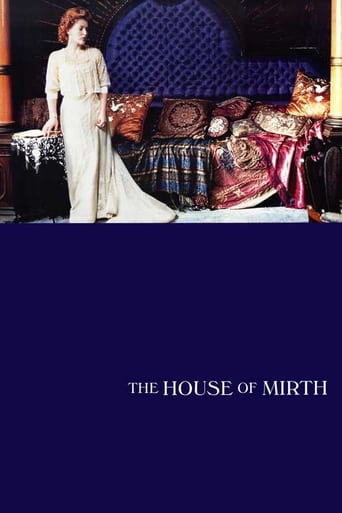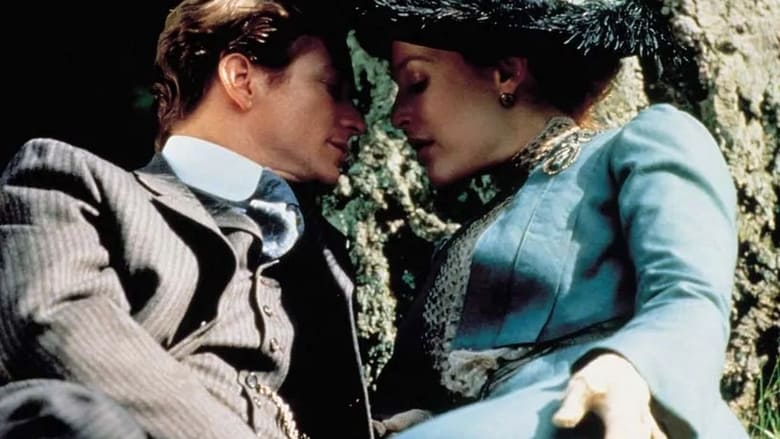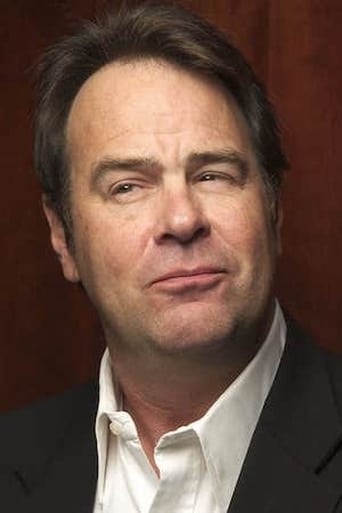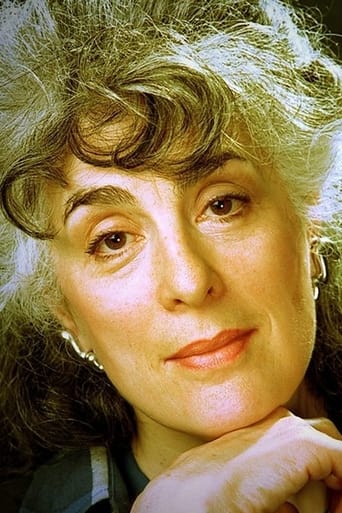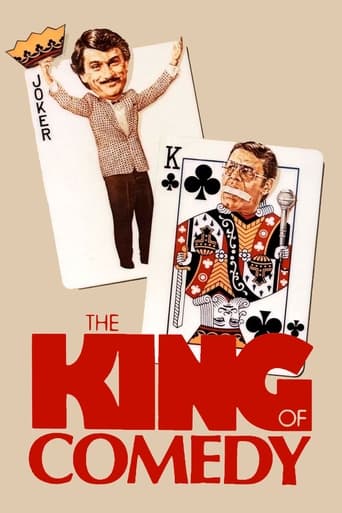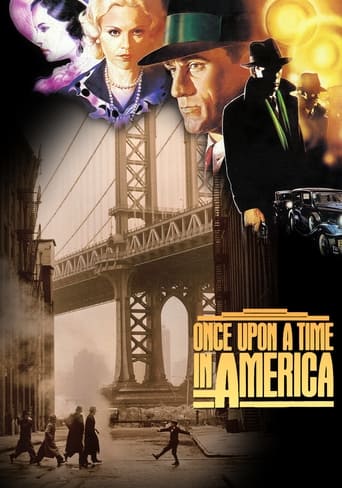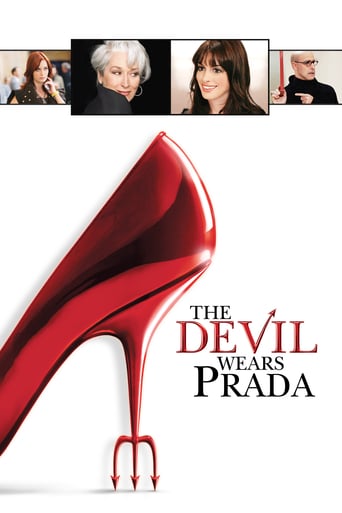The House of Mirth (2000)
In early 20th century New York City, an impoverished socialite desperately seeks a suitable husband as she gradually finds herself betrayed by her friends and exiled from high society.
Watch Trailer
Cast
Similar titles
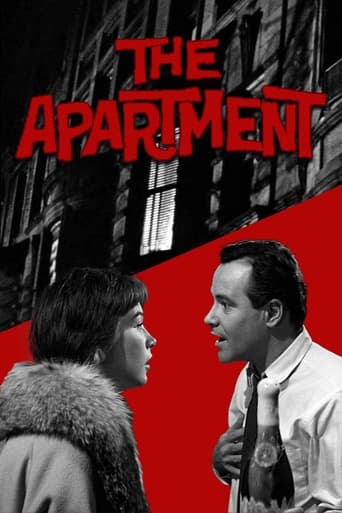


Reviews
Truly Dreadful Film
Sorry, this movie sucks
How sad is this?
Absolutely Brilliant!
The book is a masterpiece and this adaptation is almost up to that level, just as richly told and emotional. It is not the kind of adaptation that will suck people in straightaway but the slow pace and how subtle a lot of aspects are actually add to the storytelling rather than distract and shouldn't be reasons to dismiss it. While I can understand completely why not everybody will like The House of Mirth some of how the detractors express their opinion reek of ignorance, like with the I'm-right-you're-wrong attitude. The House of Mirth does have a slow start and Eric Stoltz's performance can seem rather lightweight for such a complex character, though he is not without his affecting moments. The casting does have the "is this going to work" thought initially but the performances come across really well. Laura Linney sinks her teeth into her role and is suitably bitter, Eleanor Bron is formidable, Dan Aykroyd also comes across surprisingly well in a menacing and cunning turn and Jodhi May is charming and sympathetic. Terry Kinney, Anthony LaPaglia, Penny Downie and Elizabeth McGovern are also very good. The best of the lot is Gillian Anderson, whose performance is magnetic and truly heartfelt, her last scene with Stoltz is just heart-wrenching. The House of Mirth is shot very elegantly and the whole adaptation's period detail looks gorgeous. The lack of music is a good choice, allowing the intimate, understated atmosphere of the storytelling speak for itself. The dialogue is distinctively Edwardian and very literate without being stilted, how it's adapted is very thoughtfully done and any observations of the attitudes and classes of the time are sharply done. The story takes its time to unfold which is not a bad thing, period dramas often benefit from this especially when it's adapted from complex source material, and thankfully this deliberate pacing is not done in a self-indulgent way. Narratively The House of Mirth is incredibly touching and rich in theme and character, allowing you to identify with the characters(written and characterised believably) and with the interactions and the emotion it always maintained my interest. The direction is very intelligent and subtle. All in all, a truly beautiful adaptation. 9/10 Bethany Cox
Director Terence Davies has done a magnificent job of recreating the turn of the century in "The House of Mirth," a 2000 film starring Gillian Anderson, Eric Stoltz, Dan Ackroyd, Laura Linney, Anthony LaPaglia, and Terry Kinney.Anderson is Lily Bart, a beautiful young woman of good social standing, traveling in the best circles, who throws away her opportunities for a good marriage because she wants something more meaningful. However, her reputation begins to suffer due to her circle's misreading of an innocent situation, and things go from bad to worse for her as she descends down the social strata. She has it in her power to win back everything she has lost but refuses to stoop that low due to her love for one man.It's obvious that Davies took a great deal of care with this film. It is not infused with modern sensibilities, the period look is authentic, as is the look of the cast. By that I mean, Gillian Anderson's sumptuous red hair, full beautiful face, and lovely figure are much more period than, say, Gwyneth Paltrow's -- and yet films are rarely cast with an eye toward capturing the period in that way. The casting of Dan Ackroyd as Trenor is unusual but very right - he's not truly of the class he travels in and a real glad-hander. Eric Stoltz is Selden - handsome without being drop dead gorgeous, gentile without being effeminate, who has good chemistry with Anderson.The villainess of the piece is Laura Linney as the awful Bertha Dorset, a cunning witch, and as usual, Linney is perfection -- smiling, subtle, and you can just see the knife going in. In the book she is more responsible for Lily's troubles than in the film. In the film, we see her making initial trouble for Lily; in the book, she continues to work on destroying her with a whisper here and word there.What makes the story of Lily so frustrating is that she can ruin Bertha in five minutes but refuses, suffering instead, which drove me crazy. That's not the film's fault.This was an era where no one expressed emotions, so when someone says, thank you or I understand, there is a world of meaning to be read in the eyes. It's a world of artifice, and Davies obviously worked at getting this from his actors. Everything is in what lies beneath.The acting is uniformly excellent; only Gillian Anderson falls a little short of the mark. Lily is an extremely difficult role, and Anderson at least in 2000 did not have all the necessary skill to completely pull it off. She has the look, the bearing, and the intelligence. What she lacks is the ability to actually become someone of that era, rather than putting it on like an overcoat. She does much better in the latter part of the film, which calls for a different set of acting muscles than in the beginning.Reminiscent a bit of "Sister Carrie," "The House of Mirth" points up the difficulties of women in that time period to make their way, of the boundaries of class, and the rigidity of the upper class. Highly recommended, but not an easy, cheerful film by any means.
If this film adaptation depicting lives ruined by the social mores and hypocrisy of turn of the century upper crust New York society seems to have a lot in common with the similarly plotted The Age of Innocence, it would be because authoress Edith Wharton was responsible for both novels. Unfortunately, like The Age of Innocence, this is yet another wallow in victimization and misery that Wharton seemed to specialize. However, unlike The Age of Innocence where director Martin Scorsese seemed psychotically obsessed with the elegant trappings at the expense of his story, director Terrence Davies is actually more interested in the players of his piece.The primary player is one Lily Bart (played by Gillian Anderson), a lovely, elegant young woman, who not only bungles her chance at true love, but comes to realize to her detriment how much she is at the mercy of a fickle high society filled with pettiness, envy and jealousy.Lily is at heart that rarest of beasts - a genuinely decent person. She has had the misfortune of accumulating a sizable debt from card playing, which she anticipates paying back with the inheritance to be left her by harridan aunt Eleanor Bron. As Bron is infinitely more taken with dishrag ward Jodhi May, it is questionable how much Lily can count on this development. Lily pines for scandalous attorney Eric Stoltz, who is the sometime lover of society grand dame Laura Linney, but finds bad timing and circumstance consistent obstacles to a relationship. In fact, bad timing and bad luck seem to relentlessly dog Lily in every endeavor. Trusted friends and companions reveal themselves to be bitter enemies beneath the surface. When some scandalous letters fall into her lap that would prove to be her personal salvation, Lily takes the high road to her further detriment.The House of Mirth does not have much mirth in it. It is depressing, gloomy and leaves the viewer in an utterly hopeless state. It is a despairing experience to watch the destruction of a person, who did not invite it, does not deserve it and is left broken and battered by life, while some appalling specimens of "humanity" glide past unscathed. This is by no stretch of the imagination an enjoyable viewing experience and one would imagine that it would be an even more trying reading experience.All that aside, there are definitely reasons to watch the film. Davies' assured direction and the fine literate screenplay being two of them.Another compelling reason would be Anderson's central performance. Anyone who is only familiar with Anderson from The X-Files and oblivious to the stellar acting she has also contributed to British TV and films, will most certainly be impressed with the appealing, nuanced and heartfelt performance she contributes here. What makes Lily's inexorable downward spiral a spirit crushing blow is that until the final moments where she confronts her dismal future, Anderson never plays Lily as a victim. She seems entirely too self-assured and confident in her quest to do the right thing. The climactic moments where her emotional walls crumble at what life has in store for her is a powerful sequence. The entire performance is a demonstration of understated grace.The supporting cast is strong with one notable exception. Linney is matter-of-factly monstrous as society force of nature Bertha Dorsett, who throws Lily to the wolves on a whim to make herself look better. Terry Kinney is sympathetic as Linney's cuckolded husband. When he makes an offer to Lily late in the film that would make both of them whole, it comes across as a meeting of two lost souls and one is disappointed that Lily does not take him up on it. Dan Aykroyd is terrific playing against type as a joyfully manipulative scoundrel.Unfortunately, the film is thrown off-balance by the miscasting of Stoltz in the pivotal role of the scandalous lothario that inspires so much consternation among the female characters. I usually find Stoltz underrated, but here he is all wrong. Pasty-faced and limp, Stoltz adopts an effete fey attitude that is more off-putting than attractive. It reminds one somewhat of the miscasting of John Malkovich in Dangerous Liaisons. It is difficult to believe that one woman would find him irresistible, but the fact that three women are in such ardor over him as to launch campaigns of betrayal on each other strains credibility at every turn. Worse, Stoltz barely registers a pulse when Anderson shares the screen with him so that it hardly seems that Lily is letting much pass her by with this colorless smelt. He seems less like an unrequited love than a chance acquaintance. When Lily makes the ultimate sacrifice to spare his reputation, it seems like a wasted effort. This casting leaves the important unrequited romance between the two characters a bust. And while it may be believable that a milksop like May would be enamored of Stoltz in this film, it is inconceivable that a being depicted with the voracious appetites of Linney's Bertha Dorsett would stoop to inspect him much less expose herself to vulnerabilities to chase him. A really foolish bit of casting here that nearly throws the film off balance.
Technically this film was great & it was a good story. The acting was excellent, BUT... it was also an annoying film for the following reasons:1) She seemed so intelligent, how did she also make such a stupid mistake as to leave in the middle of an opera with a married man where everyone could see her go - what was she thinking?! 2) Why was Lily so damn proud as to not accept help from 2 well-intentioned friends, one of whom actually loved her & she didn't have the sense to follow her heart! Was this realistic? (Oh ya, it's a film!) 3) Why didn't she use those damning letters to re-enter the society she craved (tho why quite frankly, when it was by and large so hypocritical, is beyond me!)? 4) And to cap it all, she decides working is just too problematic so she tops herself! What a waste! 5) Why did Lawrence not chase her more if he was really interested in her? What game was he playing at? So he annoyed me!She seemed so clever at the beginning - I thought she'd find a way out of her troubles. Sorry but she was a complex & silly woman. (Yes, it's judgmental.)I'm annoyed that this film has affected me days after I saw it.7/10 from me
